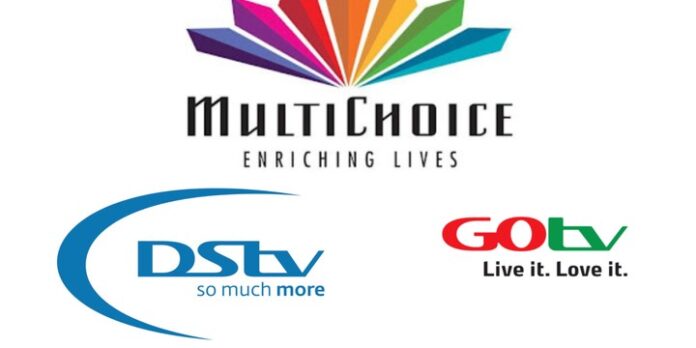Let’s talk about that moment when corporate accountability isn’t just a buzzword—it’s a seismic reality. On July 6, 2025, Nigeria’s Data Protection Commission dropped a historic ₦766,242,500 fine on MultiChoice Nigeria. For those of us juggling subscriptions, referrals, and loyalty programs, this isn’t distant corporate drama. This penalty—Africa’s largest pay-TV operator getting called out for violating our privacy—is a watershed moment. The NDPC’s investigation exposed something chilling: systematic data exploitation impacting not just DSTV/GOTV subscribers, but even their friends and family listed as contacts. If you’ve ever shared personal details with a company, this is your fight too.
The Day Privacy Enforcement Hit Home
Let’s cut through the legal jargon. The NDPC’s findings reveal three glaring violations. MultiChoice didn’t just collect your name and viewing preferences. The NDPC called their practices patently intrusive, unfair, unnecessary, and disproportionate. Think about it: Why would a TV provider need excessive details about your life—or your non-subscriber contacts? This wasn’t service delivery; it was data hoarding.
Intrusive Data Harvesting
Your personal information was shipped overseas without your consent or safeguards. Nigerian data on foreign servers means your privacy could be governed by another country’s laws—a direct breach of the Nigeria Data Protection Act.
Cross-Border Data Trafficking
Here’s the kicker: MultiChoice violated privacy rights of Nigerians who weren’t even customers. Ever listed a friend as your account contact? Their data was likely compromised too.
Secondary Victimization
The NDPC emphasized these actions violated Section 37 of Nigeria’s 1999 Constitution—your fundamental right to privacy.
Timeline of MultiChoice’s Privacy Violations
Q2 2024: NDPC launches probe into illegal data transfers
Early 2025: MultiChoice submits unsatisfactory remedial measures
July 6, 2025: Record fine of ₦766,242,500 announced
Why This Matters to You: Lifestyle and Consumer Shockwaves
This isn’t just about a corporate fine. It’s about your digital life. Every referral program you join, every friend you tag on a subscription form—your data becomes a revenue stream. MultiChoice’s breach proves companies profit from shipping your details globally without transparency.
Your Data Equals Their Commodity
MultiChoice lost 1.4 million Nigerian subscribers in two years amid economic turmoil. Now, add privacy violations: Would you trust discounted decoders or weekly plans from a company that mishandles your closest contacts’ data?
The Trust Collapse
The NDPC tied this to Nigeria’s security and economic growth. Unchecked data exports mean foreign entities could exploit Nigerian citizens’ information—eroding our control over our digital ecosystem.
National Sovereignty at Stake
The ₦766 million penalty is just the start. The NDPC is escalating. Dr. Vincent Olatunji ordered audits of all MultiChoice data collection points. Any entity violating the NDP Act now faces similar penalties. MultiChoice had a chance to fix this. Their half-hearted response proved voluntary compliance is a myth.
Beyond the Fine: NDPC’s Broader Crackdown
Regulatory Domino Effect: MultiChoice faces simultaneous battles—lawsuits over price hikes, a $3 million tax settlement, and now data governance fallout.
Protecting Yourself: Practical Data Privacy Steps
Here’s your action plan. Review every service. Delete unnecessary data—especially contacts who never consented. MultiChoice’s breach proves refer a friend features can weaponize trust.
Audit Subscriptions Now
Ask companies: Where’s my data stored? Who accesses it? Under the NDP Act, they must answer.
Demand Transparency
Opt out of marketing communications and third-party data sharing. Check account settings monthly—default options favor corporations, not you.
Withdraw Consent Ruthlessly
Got spam linked to a subscription? Contact NDPC immediately. Silence empowers violators.
Report Suspicious Activity
This fine reshapes our consumer landscape. Companies must explain data usage in plain language—not buried in terms. Brands should collect only essentials. We must resist oversharing. Ethical data handling will separate trusted brands from predators.
Privacy as a Nigerian Consumer Right
Nigeria is entitled to protect her citizens and data sovereignty. This has far-reaching implications for rule of law, national security, and economic growth.
Your Privacy, Your Power
The MultiChoice penalty isn’t just a headline—it’s a turning point. For lifestyle consumers, it’s proof: Your digital footprint is an extension of personal sovereignty. As you stream, shop, or share referrals, remember: Corporations don’t own your data—you do. Regulators now have teeth—use them. Privacy isn’t a luxury; it’s your constitutional right.
Your Data Defense Checklist
Trim Data Sharing: Remove non-essential contacts from accounts
Activate Opt-Outs: Disable third-party data sharing in settings
Password Hygiene: Use unique passwords per service
Monitor Financials: Check statements for suspicious charges
Speak Up: Report violations to NDPC


